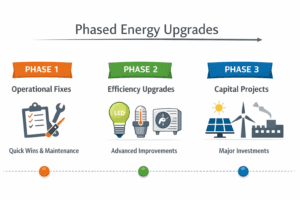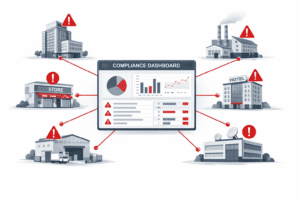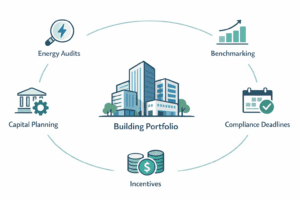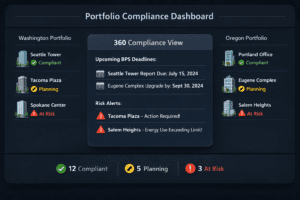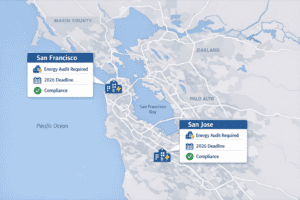In a world where technology intersects with every facet of business operations, the adoption of innovative tools is not just about staying ahead—it’s about staying relevant. Within various industries, the integration of modern technology has become increasingly crucial, and the asphalt industry, with its unique set of challenges, is no exception. The rise of Artificial Intelligence (AI) provides a beacon of hope, heralding a new era of efficiency and profitability. In this in-depth exploration, we will uncover the transformative impact of AI-driven project management on the asphalt industry.
Introduction to a New Era
Asphalt businesses, like many others, are under constant pressure to deliver projects on time, within budget, and to the highest quality. The increasing complexity of projects and the escalating competition in the market have made the quest for efficiency more critical than ever. This is where modern technology steps in, wielding the power to revolutionize traditional project management practices.
The March of Technology
No industry remains untouched by the digital revolution—the asphalt business included. Upgrades in machinery, data analytics, and communication tools have already begun to streamline operations. However, unexpected challenges such as fluctuating material costs, weather disruptions, and equipment failures still loom large, threatening the very heart of project success.
Unique Challenges in the Asphalt Industry

The asphalt industry is characterized by tight deadlines and even tighter profit margins. Projects are often at the mercy of unpredictable elements, including temperature fluctuations, which can affect the laying process, and unforeseen subbase conditions, which can cause delays or require additional materials.
The AI Solution
AI-driven technologies are designed to overcome such challenges. They offer a promise of greater control over the unpredictable, turning raw data into predictive insights that guide better decision-making.
Understanding AI-Driven Project Management Tools
AI-driven project management tools are sophisticated software systems that leverage AI, machine learning, and data analytics to optimize project outcomes. Unlike traditional software that depends on manual inputs, these tools can learn from past projects, generate predictive insights, and autonomously adjust plans in real-time.
AI: A Crucial Element in Project Management
AI in project management goes beyond mere automation. It serves as a decision-support system, offering intelligent recommendations that help project managers foresee and navigate potential pitfalls. By fostering a data-driven approach, AI ensures higher accuracy in planning and execution.
The Advantages of AI-Driven Project Management Tools
Efficient Resource Management
One of the most salient advantages of using AI-driven tools is their unmatched efficiency in resource management. These tools can anticipate the need for asphalt mix, track equipment usage, and optimize labor allocation. Machine learning algorithms digest past project data to forecast future requirements, ensuring resources are utilized to their fullest potential, thereby reducing waste and lowering costs.
Improved Scheduling and Timeline Predictions
The ability of AI to analyze large sets of data and identify patterns is invaluable for projecting timelines. The asphalt industry, with its dependency on weather and temperature, benefits immensely from AI’s predictive capabilities. By processing historical weather data and current forecasts, AI tools can pinpoint the best time windows for asphalt laying, helping project managers avoid costly delays and rescheduling.
Enhanced Risk Management and Prediction
Risk management becomes less of an art and more of a science with AI. By evaluating project history, current worksite conditions, and even economic indicators, AI-driven systems can alert managers to risks before they become issues. This proactive approach to risk management ensures that contingency plans are in place, and project momentum is maintained.
Increasing Project Success Rates and ROI
With the collective impact of improved resource management, enhanced scheduling, and proactive risk management, AI-driven project management tools raise the bar for project success rates. Projects are completed with greater precision, fewer resources are wasted, and the return-on-investment increases. Over time, the accumulation of these efficiencies can significantly boost a company’s bottom line.
Application of AI-Driven Project Management Tools in the Asphalt Business
The asphalt business model can be transformed through AI-driven project management tools, which can be customized to cater to the industry’s specific demands.
Customization for Asphalt
By tailoring AI capabilities, companies can optimize resources such as materials and equipment. Predictive maintenance schedules can prevent machinery breakdowns, route optimization algorithms can streamline logistics, and real-time monitoring can maintain quality control during the asphalt laying process.
Concrete Benefits for an Asphalt Business
The integration of these tailored AI-driven tools translates into tangible advantages. Not only can asphalt businesses achieve better financial outcomes, but they can also gain a reputation for reliability and quality, further differentiating themselves in a competitive industry.
Implementing AI-Driven Project Management Tools in Your Asphalt Business

Adopting AI-driven project management tools requires careful planning and a strategic approach.
Assessing Business Needs and Goals
To begin with, companies must identify their pain points and end goals. Is the focus on minimizing material waste, speeding up project delivery, or improving the accuracy of project bids? These goals will guide the selection of the appropriate AI tool.
Choosing the Right Tool
Once the needs are understood, the next step is to select a tool that aligns with the company’s objectives, has a proven track record, and can integrate seamlessly with existing systems.
Training and Integration
Implementing new technologies necessitates cultural and procedural changes within a company. Staff must be trained not just in how to use the new tools but also in understanding how AI decisions are made. Transparent integration into existing workflows is essential to ensure buy-in from all stakeholders.
Measuring and Refining
The transition to AI-driven project management is not a one-off; it is an iterative process. Companies must continuously measure the tool’s impact against predefined KPIs, adjusting to leverage the full potential of AI.
Future of AI in the Asphalt Industry
Looking ahead, the role of AI in the asphalt industry is poised to expand. Innovations could lead to more sustainable practices, such as optimizing the mix of recycled materials, and could enhance safety by predicting and preventing job site incidents.
Conclusion
The path forward for asphalt businesses is clear: embracing the power of AI-driven project management tools is essential. By harnessing the technology’s capabilities, businesses can achieve greater efficiency, higher success rates, and improved profitability. The journey toward AI adoption may be complex, but the rewards promise to set the pioneers of this movement apart in a rapidly modernizing industry. The future of asphalt is intelligent, and the time to adapt is now.
VertPro.com serves as a resourceful platform for property owners and managers seeking to enhance their buildings’ energy efficiency. The site offers a range of services, including Commercial Energy Audits, Benchmark Compliance consultancy, and a Construction Marketplace. At the heart of VertPro® is a suite of SaaS technology-based solutions designed to assist in navigating the complexities of Energy Benchmarking and Energy Audits/RCx Plus, while ensuring adherence to over 60 Energy Benchmarking and Energy Efficiency Laws across the country.
For those looking to improve their property’s energy usage and operational value, VertPro.com provides a diverse array of tools and information. The site aims to facilitate a better understanding of energy efficiency practices and legislation, helping building owners and property managers make informed decisions about their energy strategies while complying with all energy ordinances and laws.



